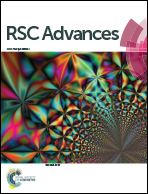A novel benzothiazole derivative SKLB826 inhibits human hepatocellular carcinoma growth via inducing G2/M phase arrest and apoptosis
Abstract
Hepatocellular carcinoma is the fifth most common cancer and durable responses in conventional treatments are limited so researchers have been devoted to developing new anti-HCC agents. Benzothiazole derivatives are known for various biological activities and have received considerable attention in cancer therapy, hence we designed and synthesized a novel potent benzothiazole compound 2-chloro-N-(2-(2-(2-morpholino-2-oxoethyl)thio)-2,3-dihydrobenzo[d]thiazol-6-yl)acetamide (SKLB826) and further investigated the biological activities against cancer. The results suggested that SKLB826 showed growth inhibition against a broad spectrum of human cancer cells, especially human HCC cell lines, in a dose-dependent manner and induced G2/M phase arrest via down-regulating the CDK1, cyclinA2 and cdc25c protein levels. SKLB826 could also induce apoptosis of HCC cells via decreasing the expression of Bcl-2 and increasing the levels of BAX and cleaved caspase-3, 9. Moreover, after treatment with SKLB826, the change of ROS level and ΔΨm suggested that SKLB826 might induce apoptosis through an intrinsic mitochondrial apoptotic pathway. Furthermore, SKLB826 could suppress tumor growth in the HepG2 xenograft model without inducing any notable major organ-related toxicity, suggesting that SKLB826 may be a potential candidate for HCC therapy.


 Please wait while we load your content...
Please wait while we load your content...